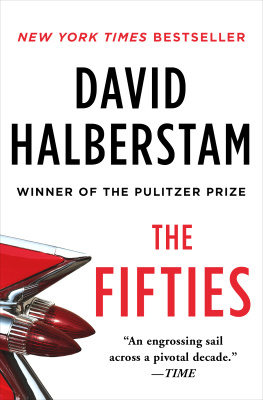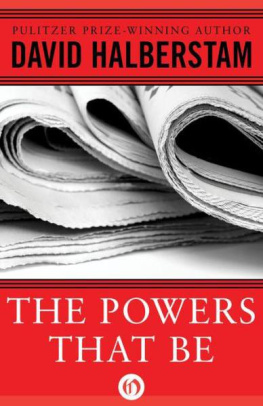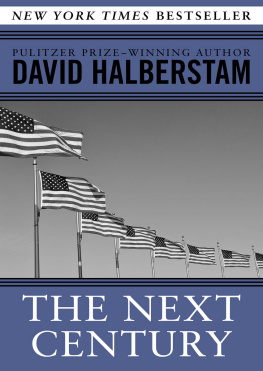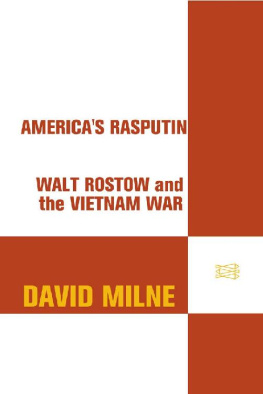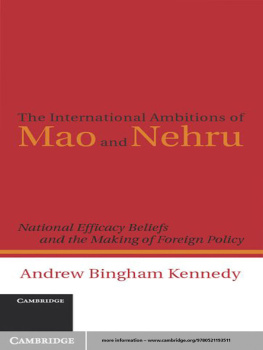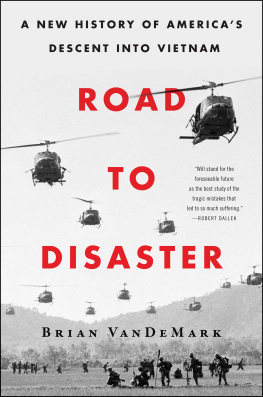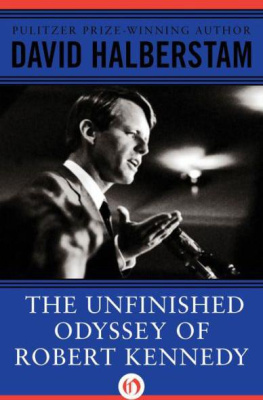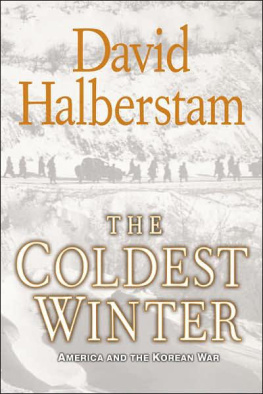Acknowledgments
This book is a reporters story, and as such it belongs as much to those others who were there: Mert Perry, Neil Sheehan, Nguyen Ngoc Rao, Mal Browne, Ray Herndon, Horst Faas, Peter Arnett, Pham Xuan An, John Sharkey, Nick Turner, Francois Sully, Vo Huynh, Ha Thuc Can, and Charley Mohr.
Epilogue: Return to Vietnam
EDITORS NOTE: In late 1967, David Halberstam went back to South Vietnam to see if the massive American military effort then entering its third year had changed the countrys prospects for survival. His conclusions appeared in Return to Vietnam, which was first published in a somewhat longer version in the December 1967 issue of Harpers Magazine .
One of the great exports of South Vietnam has always been American optimism, but this time I thought when I returned that it would be at least tempered; there would be an end of illusion, a knowledge perhaps of just how dark the tunnel really is. But we flew into Tan Son Nhut and the scenes were familiar: the jetliner waiting too long on the tarmac, its air conditioning off, then the waiting room with the American AID men come out to welcome their new arrivals and steer them past all the waiting Vietnamese at immigration. Finally I got through customs and Mert Perry, an old friend, five years here and one of the very best reporters in town, met me and assured me I was wrong: The illusions still exist. When you pay $30 billion a year you buy at least a fair share of illusions.
I have never been a dove or a hawkfew reporters who have spent any length of time here are. When I was here in 1962 and 1963 I belonged to a group of reporters who thought the war was worth winning but who doubted the effectiveness of the fight against the enemy and sensed the seed of failure in our own efforts. That group was roundly attacked by American officialdom for being too pessimistic, but in retrospect I think the great sin was that we were not pessimistic enough.
More than three years later, I still think the enemy is a real one. I think the evidence is more complete than ever that Hanoi has controlled this war since 1957, but now I doubt our capacity to win. The important things in talking about Vietnam now are: Can the war be won? Do we have the resources to win, and can we really afford these resources? People here now are talking about reorganizing the Vietnamese Army, just as they did six years ago. But it is very late here, the fabric is strained at home now, and what guarantee is there that the Vietnamese Army can be reorganized, or that it will make any difference? Can you have a fine young army in a rotting society?
So is the war being won?
The answer is yes it is, and no it isnt. On those occasions when we can use our massive power, those rare instances when our main force units find their main force units, our power is decisive, and there is more often than not a victory. Similarly in those areas which we choose to saturate with American troops, the Vietcong must move back, and in that specially protected, hot-house atmosphere a kind of pacification takes place. But the sense one finally gets is of the fragility of the situation rather than the permanence. It may be that to a particular American general, five months into his twelve months tour, the progress of the war in his zone is a final and concrete entity, but to an experienced Indochina hand there is more hesitance. Progress at a given moment is a fleeting experience unless it is brought about by the deep-rooted desire of the Vietnamese peasants themselves. That is why I am so pessimistic, for the other war, the nation building, helping the Vietnamese to help themselves, has not changed.
There is no doubt that the arrival of half a million Americans here has brought considerable military progress to Vietnam. In 1965 the Arvin (Vietnamese Army) had been defeated and the country was the Vietcongs to take. The Americans instead came and have fought well. Even General Westmore-lands criticsand their number is increasingpraise him for the way he imposed a growing American commitment on a very weak base, maneuvered his troops, and staved off defeat.
Nor is there any doubt of the massive power we have accumulated here. The mind boggles at the firepower an infantry company possesses. If anything we may have too much firepower, and with it there may be too much of a tendency not to come to grips with the more subtle problems of the war. The Vietcong and the regular North Vietnamese units have been hurt, and at times hurt badly, although it would be a great mistake to underestimate, as Westerners traditionally have, the enemys resilience and durability, his ability to recover from his wounds, and his passion to keep coming.
The Americans here talk a good deal about rooting out the Vietcong infrastructure, the invisible shadow government which is the Communist key to local success. Yet it is frankly admitted that the infrastructure has barely been touched. Thus while the enemy has lost bodies, it has not lost its apparatus, which is a very important distinction. Hence the real power of the Vietcong has not been affected.
The escalation of the war has escalated the pressure the Vietcong are putting on the population. They no longer have the luxury of working side by side with the peasants in the field, nor do they have the Ngo Dinh Diem government to help them with their own recruiting as in the old days. The VC are inflicting higher taxes on the population, recruiting boys at younger and younger ages. A friend of mine who has always been a dissenter from official optimism feels that the most striking change in the last two years has been the weakenings of the Vietcong. In 1963 and 1964 they controlled fifty per cent of the population, and they did it while being liked, he said, and now they are down to about twenty-five. The important thing, of course, is that the South Vietnamese government has not been able to move into the vacuum, theres been no real government pickup. But theres no doubt of the problems the VC facea couple of years ago if I were a young Vietnamese boy Id have gone with the VC, but now its different. Theyre putting a lot of pressure on the population too. Theyve lost some of their mystique.
(It should be noted that this has been done at a very high price to the Vietnamese peasants. In the Delta, for instance, the Vietcong has been hurt, but not by an aggressive Vietnamese Army searching out and waiting at night for VC units, but rather by constant bombing and shelling of those villages not controlled by the government, so that finally life becomes unbearable. The people either drift out of the villages toward government-controlled areas, or sleep at night, not in their huts, but in the paddies themselves to escape the shelling. Thus they no longer welcome the Vietcong into their villages, and when they come into the government areas, they say, yes, we understand why you are shelling us, yes, we know its the Vietcongs fault; but I have my doubts about what they really feel and what the final political outcome of this will be. In the past, methods such as this have come back to haunt us.)
The society is rotten, tired, and numb. It no longer cares. Twenty-one years of the war, of first the French and then Diem, have weakened the Vietnamese deeply. The sons are more corrupt than the fathers. The few patriots increasingly withdraw from the society and the struggle. The fine young men do not want to die in the U Minh forest; they want to drive their Hondas, get their draft deferments, and sit in the cafs. We are not building a nation.
Before I came back I was assured again and again by people who had been in Vietnam more recently that I would never recognize it, that it was not the same country. The American presence was so great. And yes, there is Cam Ranh Bay, and the endless Long Binh military complex outside Saigon, trucks, generators, barracks, helicopters as far as the eye can see. There is American television, and one sees American troops still in combat gear watching Combat , and a blonde weather girl pointing at the map of the U.S. and saying Los Angeles is clear and sunny , and most Vietnamese seem to have Batman T-shirts for their kids. And there is a strip of bars in Bien Hoa so long that one American there calls it Tijuana East, with sign after sign offering CAR WASH. (The Vietnamese are ingenious that way. One friend of mine has a song which goes, Baby, wont you wash my car.) All these are signs of Americanization, but what finally struck me was how little had really changed here.


